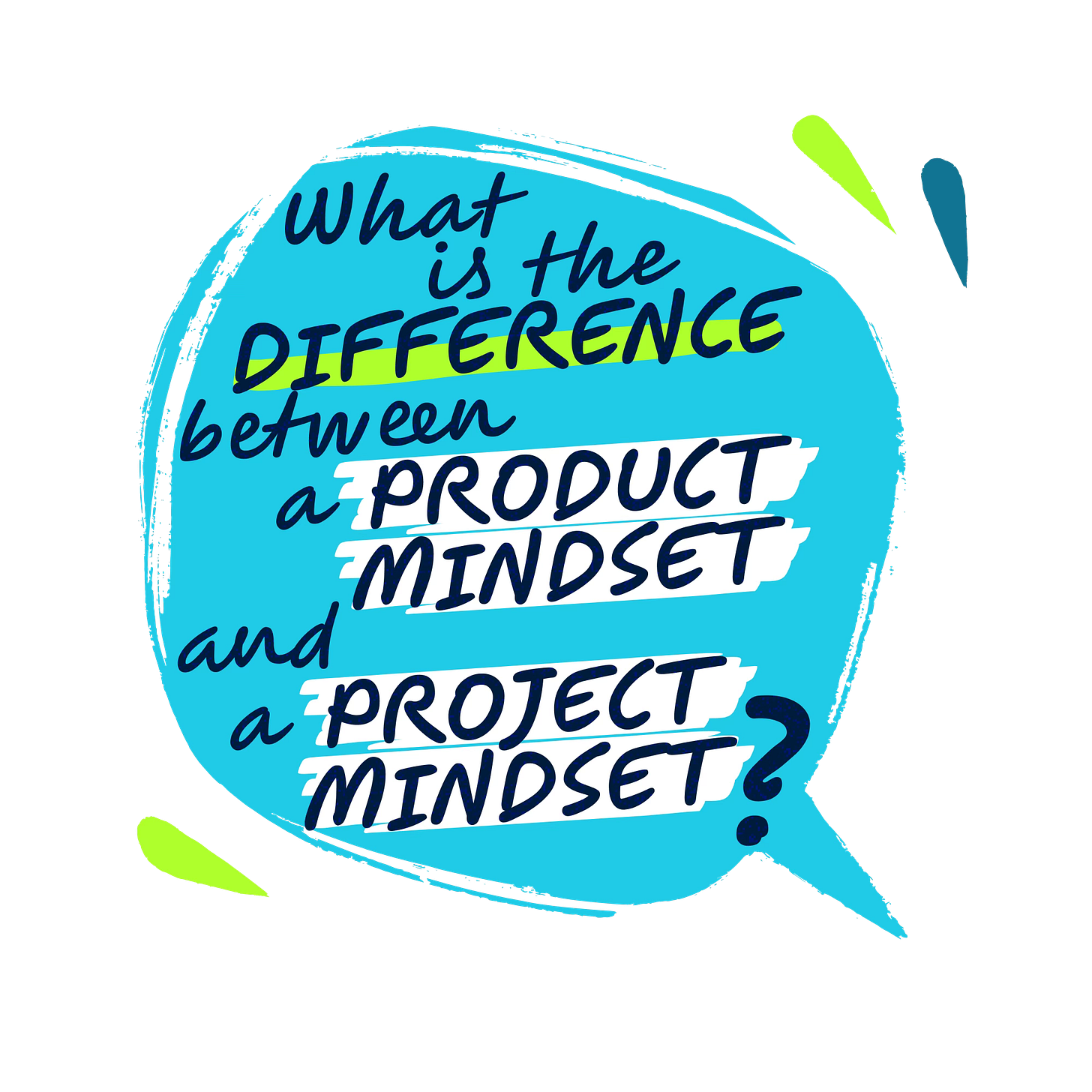What Is the Difference Between a Product Mindset and a Project Mindset?
A product mindset focuses on creating value continuously and adapting to changes, while a project mindset emphasizes delivering specific outputs within fixed constraints.
A product mindset revolves around understanding and meeting customer needs. It emphasises continuous feedback and iteration to enhance the product based on user input.
This approach ensures that the product evolves with changing customer expectations and market conditions, providing lasting value.
On the other hand, a project mindset often focuses on delivering predefined outputs, sometimes overlooking the customer's evolving needs.
1. Long-Term Vision:
Embracing a product mindset involves having a long-term vision for the product's growth and development. It is about setting strategic goals and continuously working towards them.
This vision guides the team in making decisions that align with the product's future potential. In contrast, a project mindset is usually limited to achieving short-term objectives, often constrained by specific timelines, budgets, and deliverables.
2. Adaptability and Flexibility:
The product mindset values adaptability, allowing teams to pivot based on market feedback or technological advancements.
This flexibility is crucial for innovation and staying competitive. A project mindset, however, tends to be more rigid, focusing on sticking to the original plan, hindering the ability to respond to new information or opportunities.
3. Value Delivery Over Output:
A vital aspect of the product mindset is prioritising value delivery over completing work items, which means continuously enhancing the product to maximise users' outcomes, which involves regular assessment of whether the work is genuinely adding value.
In a project mindset, the focus might be on completing tasks and meeting deadlines, sometimes at the expense of delivering real value.
4. Ongoing Improvement:
A product mindset encourages ongoing improvement and learning. It supports a culture of continuous experimentation, where teams regularly test new ideas and make data-driven decisions to enhance the product.
This contrasts with a project mindset that might conclude once specific goals are met, often needing more opportunities for further improvement.
5. Team Collaboration and Ownership:
In a product mindset, teams often feel a sense of ownership and pride in their building product. This fosters collaboration and a shared responsibility for the product's success.
The product mindset promotes cross-functional teams working together towards a common goal. Conversely, a project mindset might lead to siloed efforts where team members focus solely on their assigned tasks.
Adopting a product mindset fosters a culture of continuous value creation, adaptability, and long-term vision. It requires teams to be customer-focused, flexible, and committed to ongoing improvement.
This approach enhances the product and drives innovation and long-term success. By prioritising value and embracing change, a product mindset helps build products that truly resonate with users and stand the test of time.



